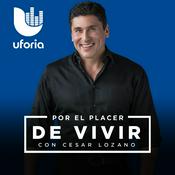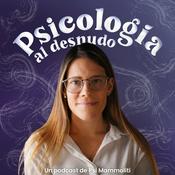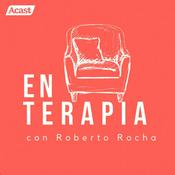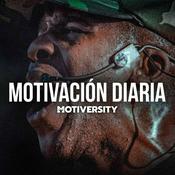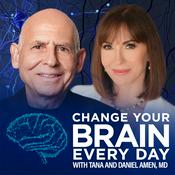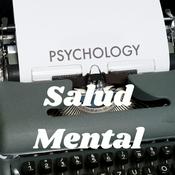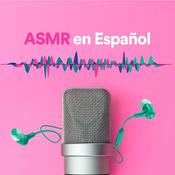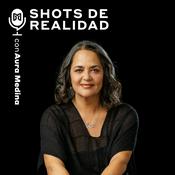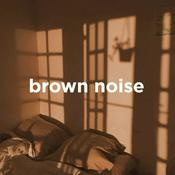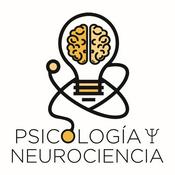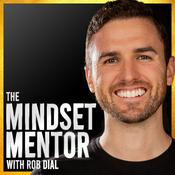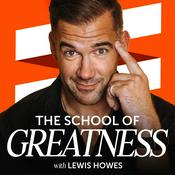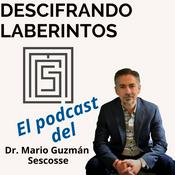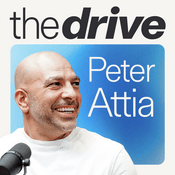Episodios disponibles
5 de 297
- Measuring Thinking Rather Than Knowledge with Dr. Jack Naglieri (reprise)As we wrap up 2025, we are featuring some of our most important conversations, including this conversation about IQ, intelligence, and intelligence assessment. Emily Kircher-Morris welcomes Dr. Jack Naglieri, an emeritus professor at George Mason University and senior research scientist at the Devereux Center for Resilient Children. Dr. Naglieri is renowned for his work in intelligence testing and the development of the Naglieri Nonverbal Ability Test. In this sprawling conversation, Emily and Jack talk about his insights on the evolution and misconceptions surrounding intelligence assessment. They discuss the history of intelligence testing, and the limitations and biases inherent in traditional methods. Dr. Naglieri describes the experiences that led him to question the validity of verbal-based intelligence tests, and ultimately inspired his development of nonverbal assessment tools. They discuss the PASS theory of intelligence, and how it forms the foundation of the Cognitive Assessment System (CAS), a tool designed to measure these processes and offer a nuanced profile of an individual's cognitive strengths and weaknesses. You can download a free copy of the PASS Theory of Intelligence and the CAS2. Dr. Jack A. Naglieri, Ph.D., is Emeritus Professor at George Mason University and Senior Research Scientist at the Devereux Center for Resilient Children. His main interest is the development of psychological and educational tests and the implications these approaches have for accurate and equitable assessment. He has published about 25 books, 50 tests and rating scales, and approximately 300 research papers. Jack is the author of tests used for identification of gifted students, including the Naglieri Nonverbal Ability Test. He partnered with Dina Brulles and Kim Lansdowne to coauthor the Naglieri Tests of General Ability Verbal, Quantitative and Nonverbal, and the book, Understanding and Using the Naglieri General Ability Tests: A Call to Equity in Gifted Education (Brulles, Lansdowne & Naglieri, 2022). Dr. Naglieri has received many awards for his extensive research program that includes scholarly research, books, and psychological tests with an emphasis on uniting sound theory with equitable scientific practice. BACKGROUND READING PASS Theory of Intelligence and the CAS2, Jack's website, The Naglieri General Ability Tests If you'd like members of your organization, school district, or company to know more about the subjects discussed on our podcast, Emily Kircher-Morris provides keynote addresses, workshops, and training sessions worldwide, in-person or virtually. You can choose from a list of established presentations, or work with Emily to develop a custom talk to fit your unique situation. To learn more, visit our website. The Neurodiversity Podcast is on Facebook, Instagram, BlueSky, and you're invited to join our Facebook Group.--------51:13
- Rejection Sensitivity Dysphoria with Dr. Bill Dodson (reprise)Emily Kircher-Morris and Dr. William Dodson have a conversation about the complexities of ADHD, in which they discuss emotional dysregulation, Rejection Sensitivity Dysphoria (RSD), and social anxiety. They talk about how RSD manifests in ADHDers, and how we can distinguish it from social anxiety. They also explore the impact of childhood experiences, the vital role of relationships, and the need for updated diagnostic criteria. This conversation was taken from a two-part series earlier in 2025. TAKEAWAYS Emotional dysregulation is often overlooked in ADHD diagnoses. RSD is a specific condition affecting many with ADHD; the pain can be both emotional and physical, leading to significant life impairments. Social anxiety is anticipatory, while rejection sensitivity is reactive; they can coexist but are distinct. Childhood experiences can exacerbate RSD but are not the sole cause. Medication, alongside sleep, nutrition, structure, and routine, plays a vital role in emotional regulation. Mood disorders can manifest independently of external events, and a significant percentage of individuals with ADHD have coexisting psychiatric diagnoses. Understanding RSD is essential for clinicians, and psychoeducation is key to self-advocacy. Here's the research project Emily mentions in her closing thoughts. Dr. Bill Dodson is a board-certified adult psychiatrist who has specialized in adults with Attention Deficit/Hyperactivity Disorder for the last 27 years. In recognition of his clinical contributions to the field of ADHD he was named a Life Fellow of the APA in 2012. He was the 2006 recipient of the national Maxwell J. Schleifer Award for Distinguished Service to Persons with Disabilities. His contributions to the field of ADHD include: The only currently available methodology for the fine-tuning of ADHD medications. The concept of Rejection Sensitivity Dysphoria and its treatment with medications. The first non-behavioral theory of what ADHD is and how it can be treated successfully with an emphasis on what goes right rather than what goes wrong. BACKGROUND READING Bill Dodson's website, Dr Dodson's contributions to ADDitude magazine--------57:14
- Building a Culture of Inclusion and BelongingEmily Kircher-Morris is joined by Tim Villegas, the Director of Communications at the Maryland Coalition for Inclusive Education (MCIE) and the founder and host of the Think Inclusive Podcast, to discuss the concept of inclusion in education. The idea is to create inclusive environments for all students, and Tim shares his personal journey toward that goal, and insights on how to create such an environment. They talk about the importance of community, equity, and meaningful contributions in schools, as well as the challenges faced in inclusive classrooms. TAKEAWAYS Inclusion is a powerful word that means different things to different people. School should be a place where everyone belongs, regardless of their needs. Being fair means providing everyone with what they need, not just the same thing. Community plays a crucial role in fostering inclusion in schools. Inclusion is not just about placing students in general education settings; it's about creating supportive environments. Schools should aim to be more like real life, accommodating all learners. For information about the variety of courses for teachers, parents, and mental health professionals through the Neurodiversity University, check the info page on our website. Tim Villegas is the Director of Communications at the Maryland Coalition for Inclusive Education (MCIE) and the founder and host of the Think Inclusive Podcast, a long-running show dedicated to building bridges between families, educators, and advocates in the disability and inclusion space. With a background as a special education teacher and instructional coach, Tim brings over a decade of classroom experience to his work in advancing equity and inclusive practices in schools. Through his leadership at MCIE and his widely respected podcast, Tim has become a national voice for inclusive education—amplifying the stories, research, and strategies that help create learning environments where all students belong. His work focuses on shifting mindsets, promoting systemic change, and centering the lived experiences of students with disabilities and their families. BACKGROUND READING Tim's links and info If you'd like members of your organization, school district, or company to know more about the subjects discussed on our podcast, Emily Kircher-Morris provides keynote addresses, workshops, and training sessions worldwide, in-person or virtually. You can choose from a list of established presentations, or work with Emily to develop a custom talk to fit your unique situation. To learn more, visit our website. The Neurodiversity Podcast is on Facebook, Instagram, BlueSky, and you're invited to join our Facebook Group.--------37:33
- Late Diagnosis ADHD: Looking Back for Context, Looking Forward for ClarityToday, Emily Kircher-Morris talks with Carla Ciccone, a Toronto-based writer and author of the book Nowhere Girl, about her experiences with ADHD, identity, and motherhood. Carla talks about dealing with her late diagnosis of ADHD, and the overall impact of societal expectations on women. They talk about the difficulties of navigating life with undiagnosed ADHD, how it increases the challenges of parenting, and the importance of self-awareness and therapy in managing ADHD symptoms. TAKEAWAYS When you realize you've had ADHD all along, allow yourself grief and grace. Therapy can be a critical tool for understanding and managing ADHD as an adult. Motherhood can look completely different through the lens of ADHD. For information about the variety of courses for teachers, parents, and mental health professionals through the Neurodiversity University, check the info page on our website. Carla Ciccone is a Toronto-based writer whose work spans memoir, cultural commentary, and reported nonfiction. She is the author of Nowhere Girl, a powerful debut that blends personal narrative with investigative reporting to explore her experience of living with undiagnosed ADHD. Through sharp insight and humor, Carla sheds light on the challenges of late diagnosis and the complexities of navigating neurodivergence in a world that often overlooks it. In addition to her book, Carla's writing has appeared in a range of publications, where she explores topics related to identity, mental health, and gender. With Nowhere Girl, she offers a resonant, deeply personal account that has sparked conversations about how ADHD—especially in women—can remain hidden for years. BACKGROUND READING Carla on Instagram, Carla's website, Nowhere Girl: Random House, Amazon If you'd like members of your organization, school district, or company to know more about the subjects discussed on our podcast, Emily Kircher-Morris provides keynote addresses, workshops, and training sessions worldwide, in-person or virtually. You can choose from a list of established presentations, or work with Emily to develop a custom talk to fit your unique situation. To learn more, visit our website. The Neurodiversity Podcast is on Facebook, Instagram, BlueSky, and you're invited to join our Facebook Group.--------34:32
- The Over-Under on Achievement with Jim DelisleCookie-cutter curriculum can be Kryptonite to a gifted kid, and can often spark a decline into a place where underachievement becomes the norm. Dr. Jim Delisle helps us probe the world of underachievement, and suggests ways to help people of various underachiever profiles break their chains. Our hearts are heavy with Jim's recent passing. Jim Delisle was a giant in the field of giftedness and neurodiversity, and one of its fiercest advocates. He was a friend, an important collaborator, and his contributions left an indelible mark on our podcast and the lives of our team. More than that, he literally changed the world for countless neurodivergent people. Our thoughts are with Jim's family - his wife, Deb, son Matthew and daughter-in-law Jennifer, and grandson, Wyatt. Thank you, Jim, for being such an important part of our story. James Delisle, PhD, was a professor of education for 25 years at Kent State University (Ohio), where he was selected by faculty and students as a Distinguished Professor, the University's most prestigious teaching award. Jim worked on behalf of gifted children and teens for nearly four decades. He was the author of hundreds of articles and 17 books that have been published in multiple languages, and consulted with schools worldwide in an effort to increase awareness of the needs of gifted children and adults. Jim also worked part time with highly gifted 9th and 10th graders at the Scholars' Academy in Conway, South Carolina.--------34:20
Más podcasts de Salud y forma física
Podcasts a la moda de Salud y forma física
Acerca de Neurodiversity Podcast
The Neurodiversity Podcast talks with leaders in the fields of psychology, education, and beyond, about positively impacting neurodivergent people. Our goal is to reframe differences that were once considered disabilities or disorders, promote awareness of this unique population, and improve the lives of neurodivergent and high-ability people.
Sitio web del podcastEscucha Neurodiversity Podcast, En la voz de Mario Guerra y muchos más podcasts de todo el mundo con la aplicación de radio.net
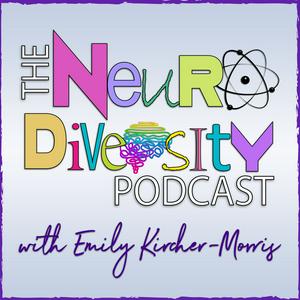
Descarga la app gratuita: radio.net
- Añadir radios y podcasts a favoritos
- Transmisión por Wi-Fi y Bluetooth
- Carplay & Android Auto compatible
- Muchas otras funciones de la app
Descarga la app gratuita: radio.net
- Añadir radios y podcasts a favoritos
- Transmisión por Wi-Fi y Bluetooth
- Carplay & Android Auto compatible
- Muchas otras funciones de la app


Neurodiversity Podcast
Escanea el código,
Descarga la app,
Escucha.
Descarga la app,
Escucha.





